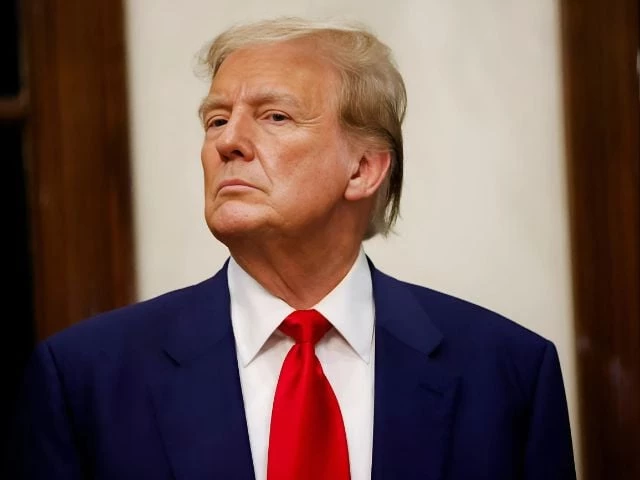Trump says millionaire tax would prompt wealthy to leave country
Trump calls tax hike on wealthy “disruptive” amid party divisions on fiscal plans.

US President Donald Trump said that he opposes introducing a new tax on millionaires, warning that higher rates could prompt wealthy Americans to leave the country altogether.
Speaking from the Oval Office, Trump told reporters that while affluent individuals once moved from state to state to avoid higher taxes, modern transportation has made international relocation easier.
“In the old days, they left states,” Trump said. “Now, with transportation so quick and so easy, they leave countries. You lose a lot of money if you do that.”
The president added that wealthy citizens are key contributors to the federal tax base and warned that an exodus of high earners would be “disruptive” to the economy. “That would be bad because the wealthy people pay the tax,” he said.
Trump’s remarks mark a reversal from earlier reports suggesting he was open to raising taxes on top income brackets. In March, Axios and Semafor reported that the administration was considering allowing higher rates on the wealthy in exchange for cutting taxes on service industry tips.
Republican lawmakers, including some in Trump’s inner circle such as Vice President J.D. Vance and Treasury Secretary Scott Bessent, have publicly supported modest tax increases for Americans earning over $1 million annually.
The proposals aimed to counterbalance national debt concerns while preserving the party’s economic platform.
The top marginal income tax rate currently stands at 37%, down from 39.6% following Trump’s 2017 tax reforms. Some Republicans have floated a return to the pre-2017 rate as part of a broader fiscal compromise.
Renewing expiring tax cuts, alongside proposed new reductions, could add an estimated $4 trillion to the national debt over the next decade, analysts say.
Trump has also hinted at replacing portions of the federal tax system with tariffs, although economists argue such measures disproportionately affect lower-income households and generate insufficient revenue.






















COMMENTS
Comments are moderated and generally will be posted if they are on-topic and not abusive.
For more information, please see our Comments FAQ